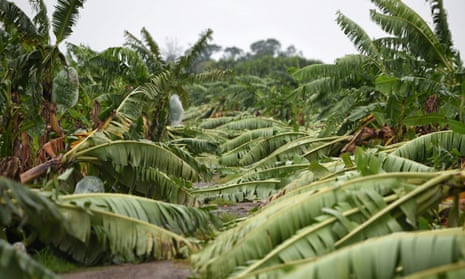The City broker TP ICAP has launched a weather data-backed index that it says will allow business risks tied to the pace of the climate crisis to be traded on financial markets for the first time.
The creation of an index allows financial firms to form a view on the rate of temperature change and build financial products to hedge the risks.
Launched in partnership with the environmental data firm Speedwell, the ICAP-Speedwell Climate Index will be underpinned by a representation of average global temperature based on statistics collected from 50 independent weather stations globally.
Using a dataset that is 20 years old but that will be updated daily, TP ICAP said it expected this to provide a pricing model that would allow financial firms to create futures and options products that can be traded on markets.
Insurers and bankers already track specific weather events such as torrential rainfall near coffee plantations or hurricane risks in the Gulf of Mexico, but the index is believed to be the first to track the climate crisis globally.
“Many companies have significant and sometimes unquantified exposure to weather and climate risk,” said Nicholas Ernst, TP ICAP’s managing director of weather markets.
“The introduction of the index has the ability to dramatically change how people calculate the financial impact of global climate change, providing comprehensive data to quantify the impact of future temperature changes for the first time.”
However, ShareAction, a charity that promotes responsible investment, was critical of the new index. Helen Wiggs, the head of climate, said: “It’s hard to think of a better example of the financial sector putting profit before planet than an index that allows investors to bet on the severity of climate change.
“Investors should be focusing all their attention on aligning their investment and engagement practices with 1.5C pathways, instead of creating new products to gamble on the severity of heatwaves and floods that will inflict misery on millions.”
The launch of the index comes in the run-up to the Cop26 summit in Glasgow, starting on Saturday, where more than 120 world leaders will gather to discuss stepping up efforts to reduce greenhouse gas emissions.
Under the landmark Paris agreement, signed in 2015, governments committed to limiting global temperature rises to well below 2C above pre-industrial levels, while pursuing efforts to limit heating to 1.5C. Those goals are legally binding and enshrined in the treaty.
However, to meet those goals, countries agreed on non-binding national targets and those are inadequate to meet the Paris temperature goals.
